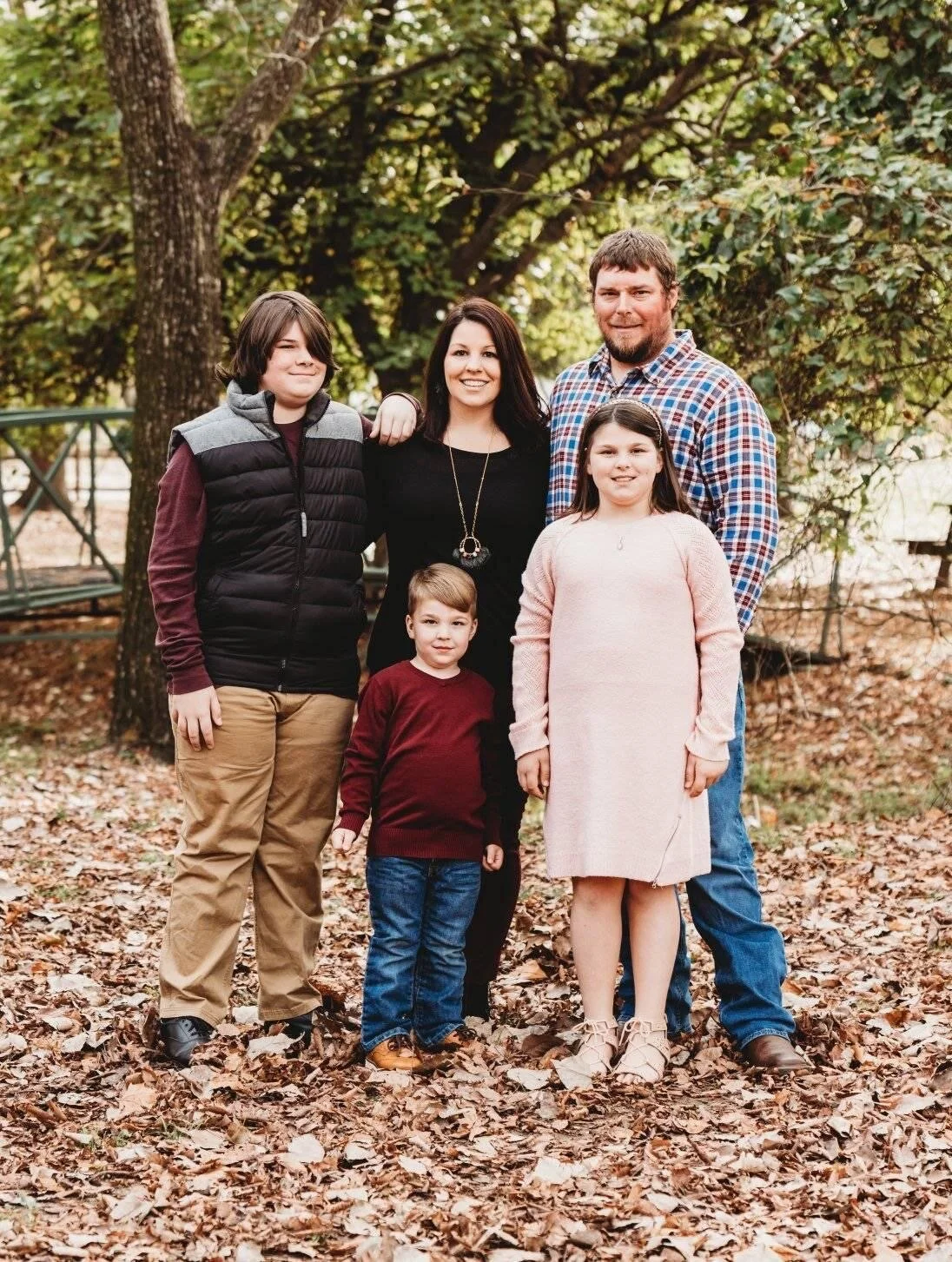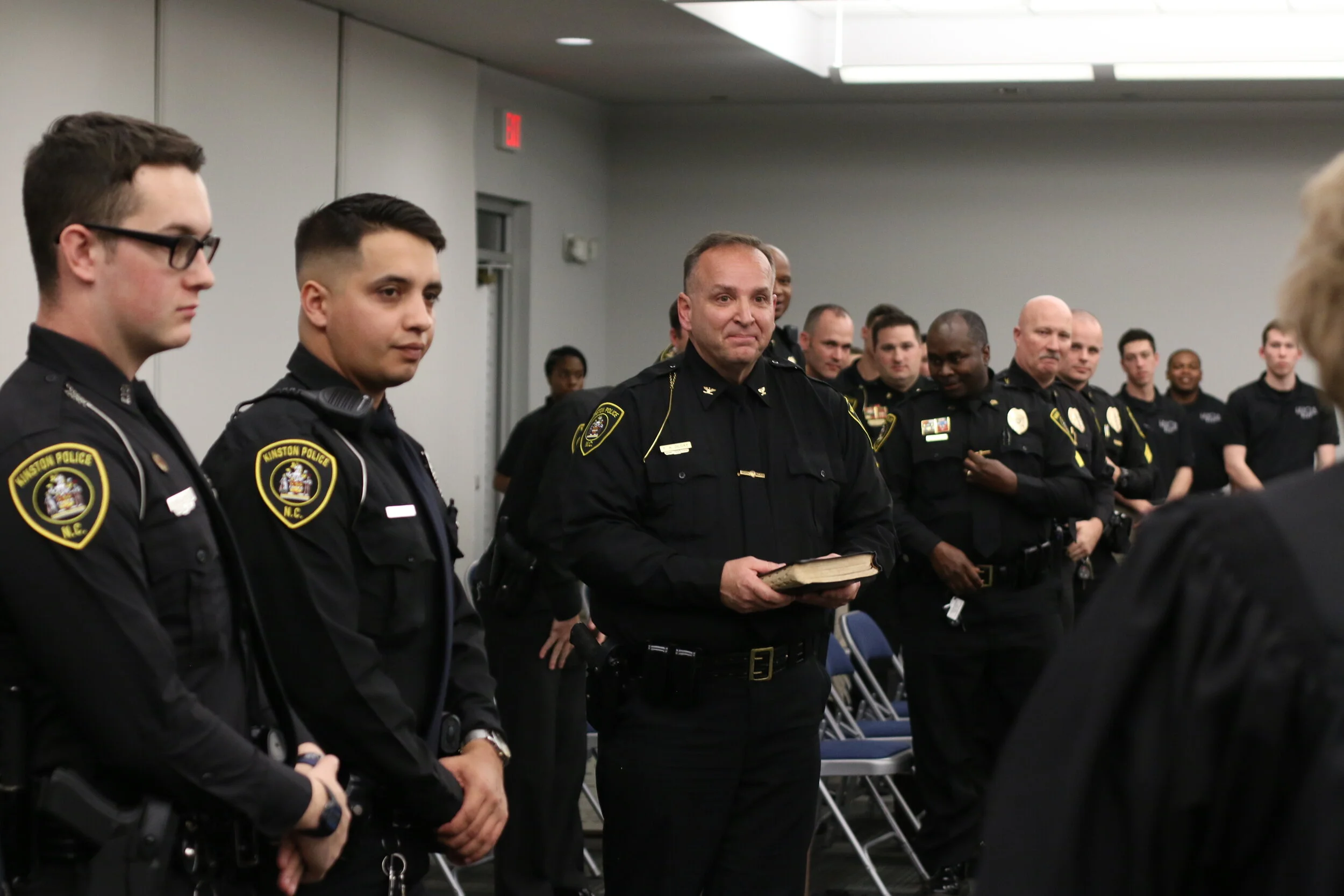NC’s Poet Laureate connects students to stories at Rochelle
Jaki Shelton Green is following her grandmother’s instructions.
“My grandmother told me, ‘This is what you will do: you will tell. Your job is to tell,’” Green says to a dozen sixth graders at Rochelle Middle School.
It is a job she does as an author with eight books of poetry to her credit, as a teacher at Duke University’s Center for Documentary Studies, as Poet Laureate of North Carolina since 2018 and, this week, as writer-in-residence at Rochelle.
“The power of stories,” she tells the students. “Our stories are powerful. They’re valuable.”
It is the first of five days of her work at Rochelle and she is telling the group of 11- and 12-year-olds a personal story to illustrate this point: that what we keep – the family heirlooms, the memories, anything we treasure – says something about who we are.
What Green keeps is a rusty nail that has been passed down through generations of her maternal lineage. It is a nail, she says, that fell from a wagon taking her grandmother’s grandmother, as an enslaved child of 9, from the child’s mother and the place where they’d lived. The reason for the child’s banishment? She had learned to read and write.
“So I think about that nail and I think about a 9-year-old girl who looked just like me who nearly lost her life just to know how to read and write,” Green says. “I want you to think about your stories, the power of your stories.”
The Rochelle students are polite listeners, but in the presence of the state’s Poet Laureate – a title one student guessed went to “the leader of poetry in North Carolina” – they are shy about speaking and, on Day 1 at least, unsure about putting pencil to paper to describe the thing they keep. It will be Green’s week’s work to help these students and another group of seventh graders to connect the art of writing to what comes naturally to them as digital documenters of their lives.
“I find that young people especially don’t even know they’re documenting every day,” Green tells a visitor to her classroom. “I want to encourage them to think more about the literary arts and how important literature is not just to their education but to their well-being. I believe creativity is medicine and art is that fabulous place where we can stand in all of our differences and appreciate the fullness that art brings to our humanity.
“With young people, we need to get to them while their young, to get them excited about writing, about painting, about dance. A well-rounded creative student is a well-rounded academic student. Arts really do enhance academic enrichment.”
That is a connection Rochelle Middle strives to make. Designated several years ago as an A+ school by the N.C. Arts Council – that is, a school where the arts infuse academics – Rochelle benefits from annual visits to its classrooms by some of the state’s leading visual and literary artists. Most are involved in the same residency program that brought Green – and a week earlier, North Carolina photographer Jim Lee – to Rochelle, a program funded by N.C. Arts Council grants to Kinston’s Community Council for the Arts. This is the 12th year the Community Council for the Arts has assisted Rochelle with residences, according to Sandi Landis, its executive director.
By Green’s own count, she will work with students at 121 schools in the state during the 12 months that started last April. That’s in addition to the teaching and story-telling she does outside the schools. “I’m all over the map,” she reports. “I’m working with everybody – people in rest homes, people in retirement homes, young people who are in juvenile detention centers, prisoners. I’m everywhere.”
Where she most likes to be, she says, are those towns where people don’t know much, if anything, about the position of Poet Laureate.
“I take the post very, very seriously,” she says. “Those are the places I know I need to be. Once they find out what it is, they get excited. I say, ‘Tell me some stories. I know you have some stories.’ I want people to understand that it is our stories that tell who we are as a state. It is our stories that connect across racial, social, economic, any of the divides.
“These things are what connects us as a people, so I get very excited about the post. That’s why I allow myself to be as busy as I am.”




